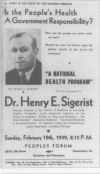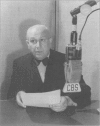Abstract
Henry E. Sigerist, an internationally renowned medical historian, played a surprisingly important and visible role in American medical politics in the 1930s and 1940s. Born in Paris of Swiss parents, he was professor in Leipzig, Germany, before coming to the United States in 1932 as professor of the history of medicine at Johns Hopkins University. Once in America. Sigerist became deeply involved in medical politics and the campaign for national health insurance. He argued that individualized medical practice was outdated and should gradually be superseded by state-run and state-financed health services. National health insurance was but one step in this historical progression. Sigerist thus lent the weight of history itself to the cause of medical care reform. The charming and erudite Sigerist was welcomed by the leaders of academic medicine in America. Soon, he emerged as a spokesman of the left wing of the medical profession, an effective and popular speaker and an impassioned advocate of socialized medicine. This paper traces Sigerist's political ideas and activities, and his contributions toward medical care reform in the United States.
Full text
PDF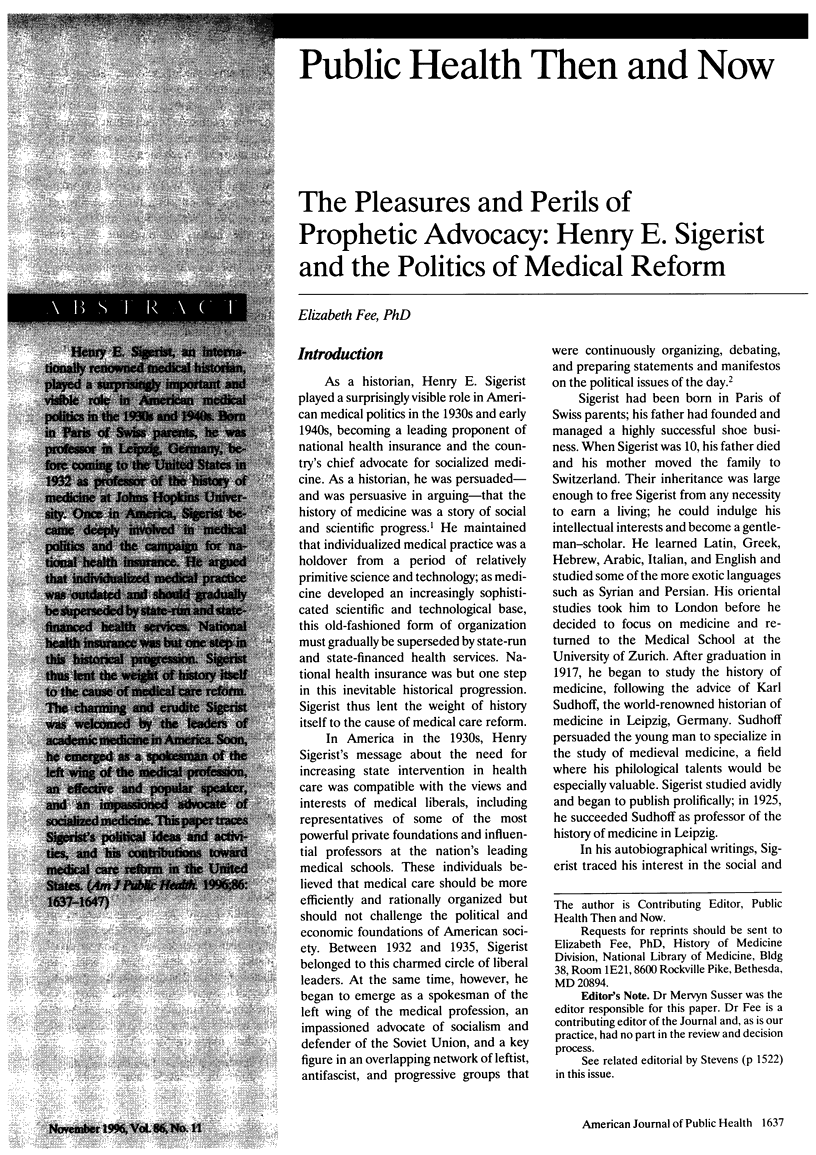
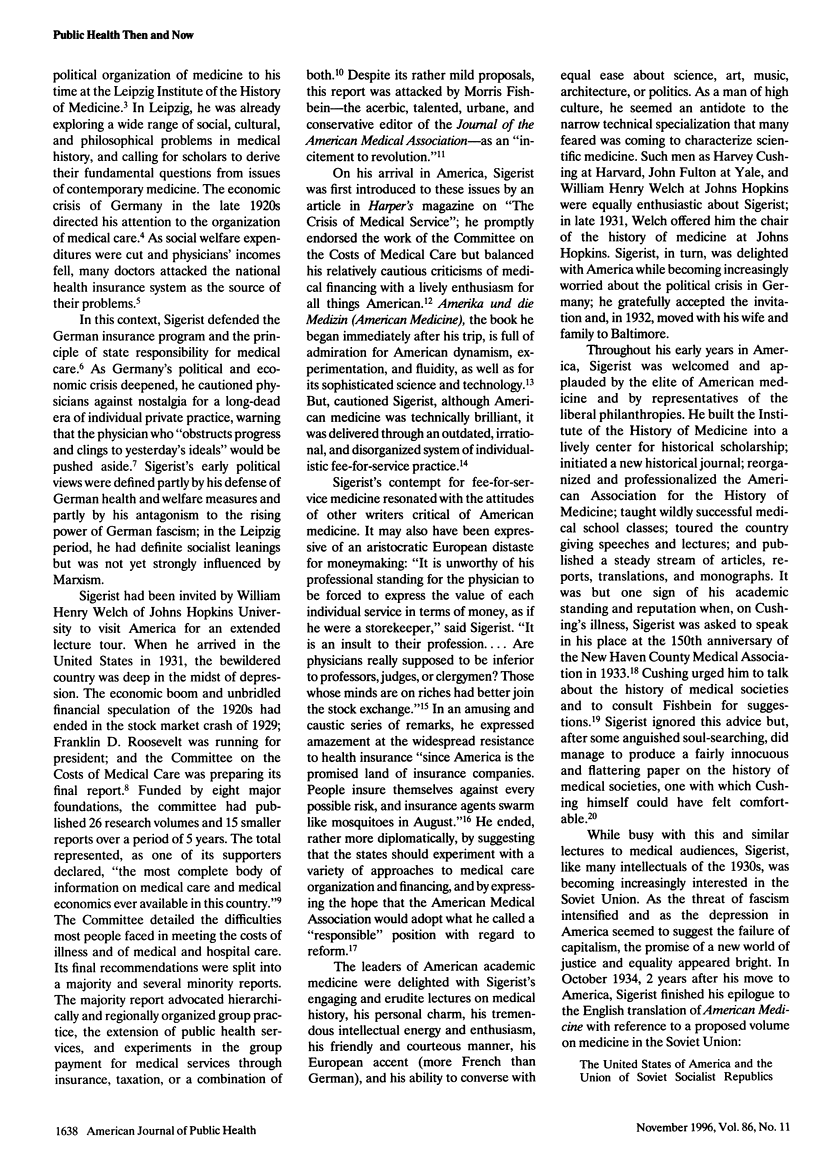
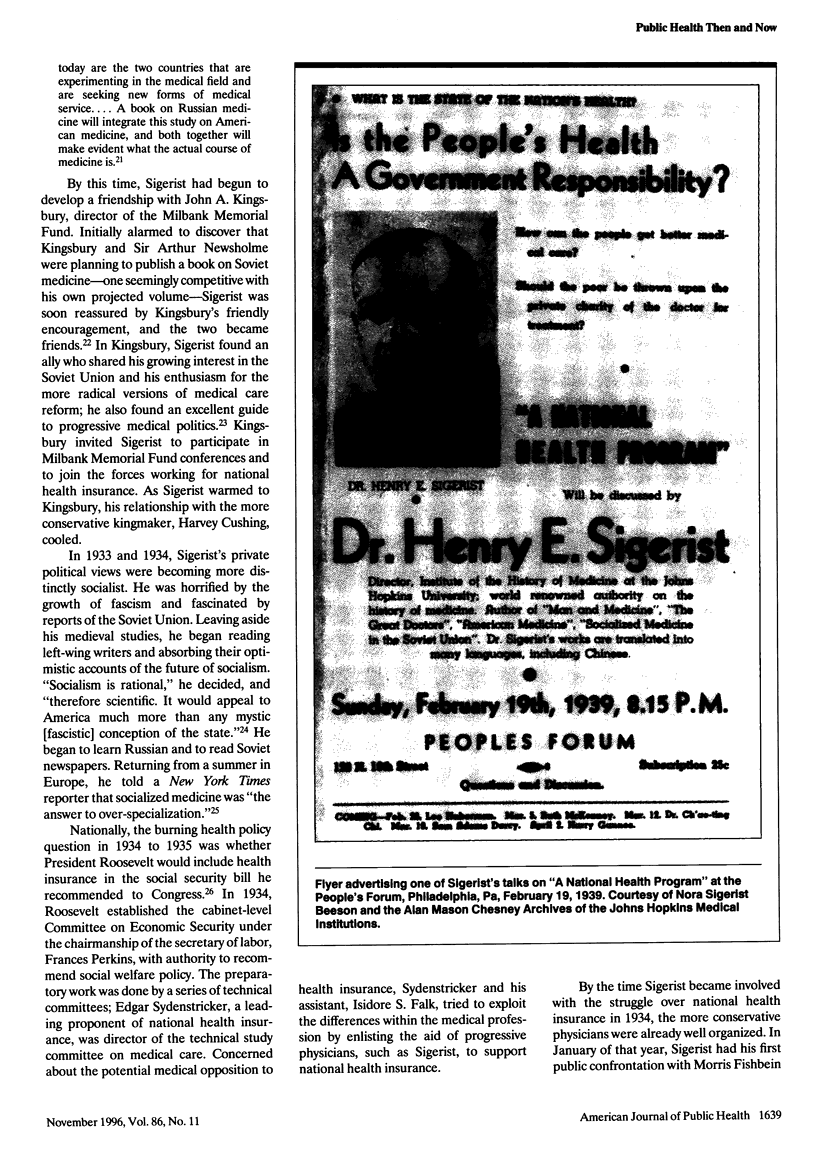
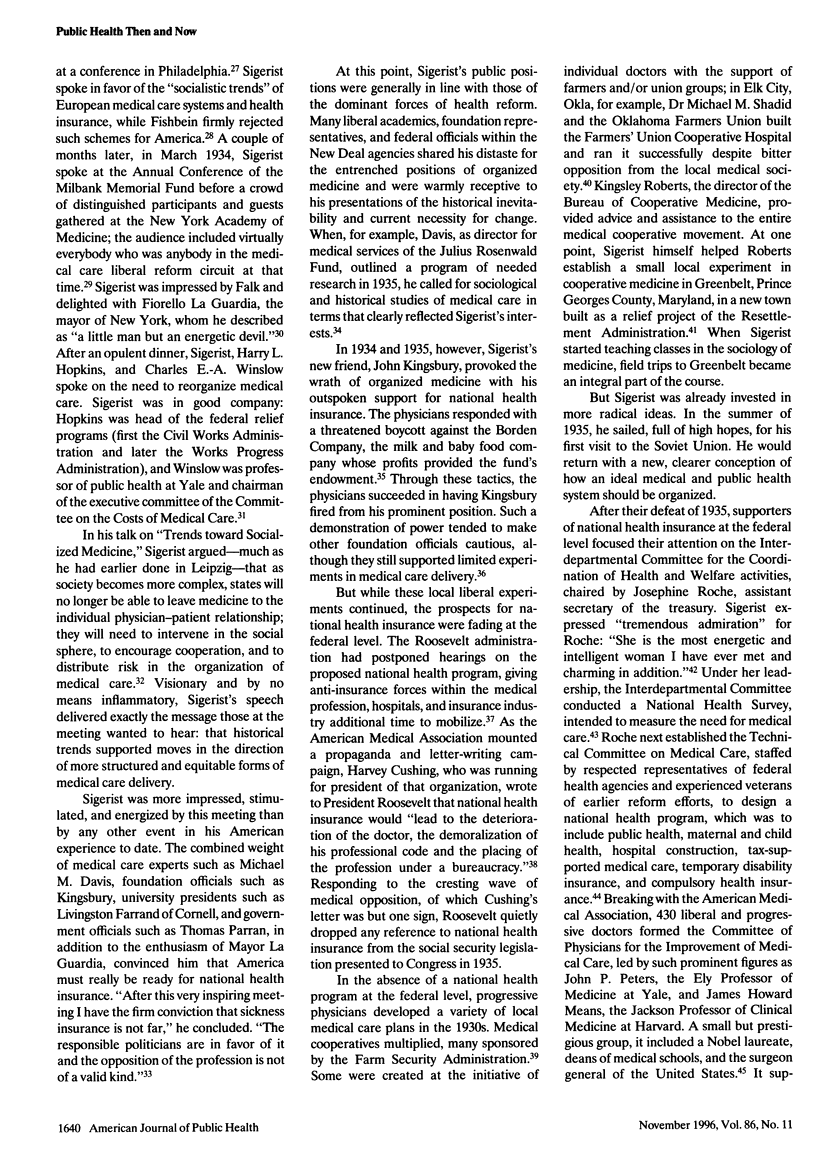
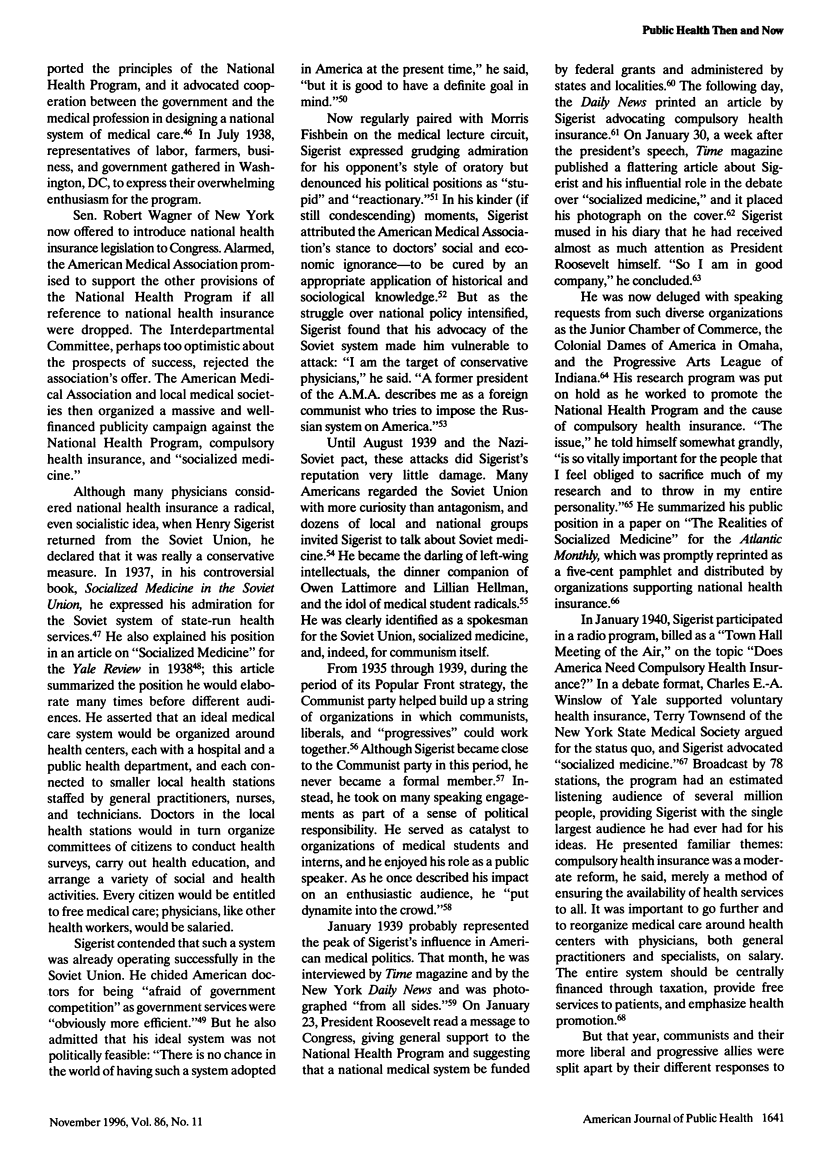
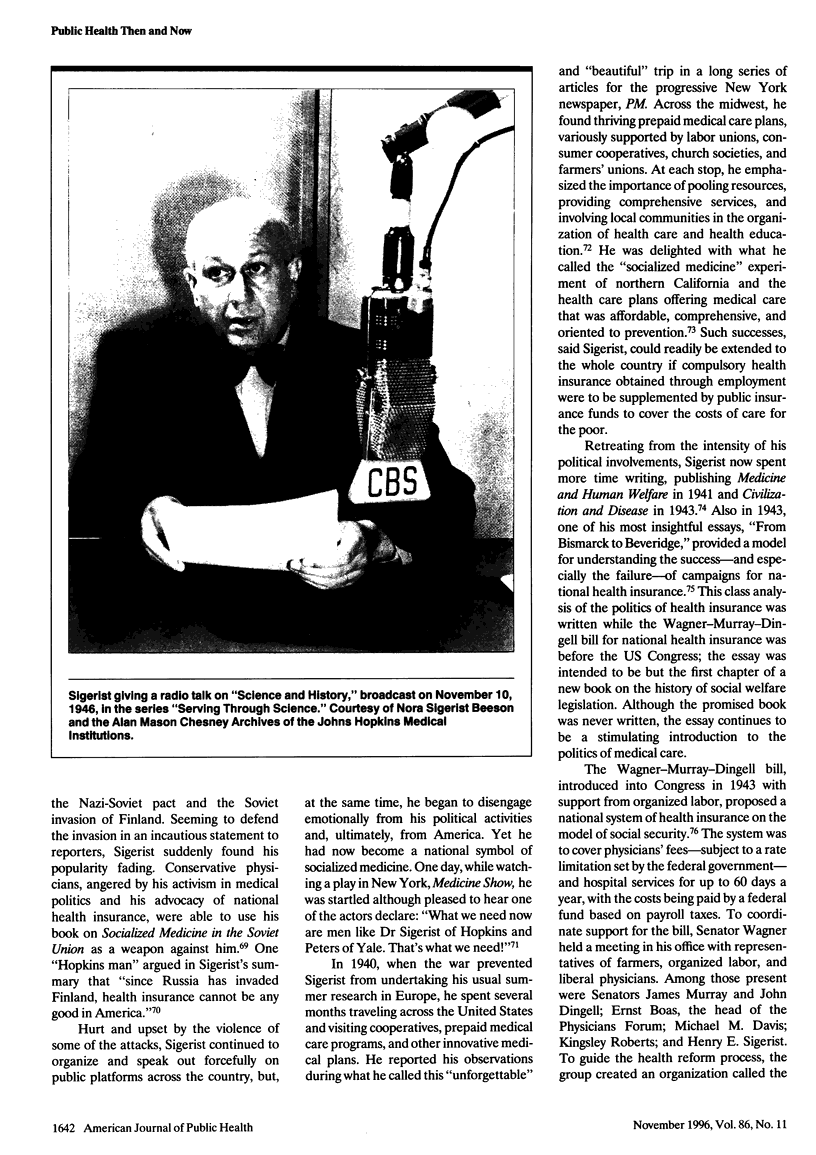
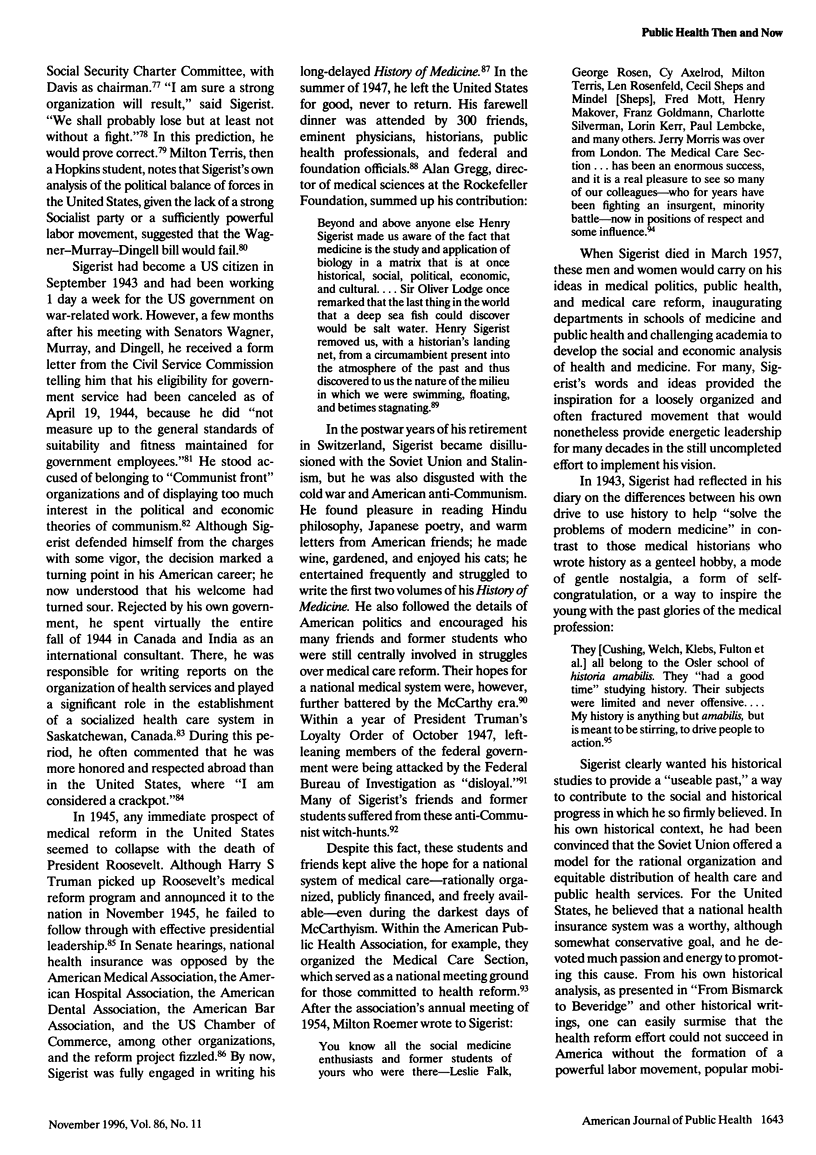
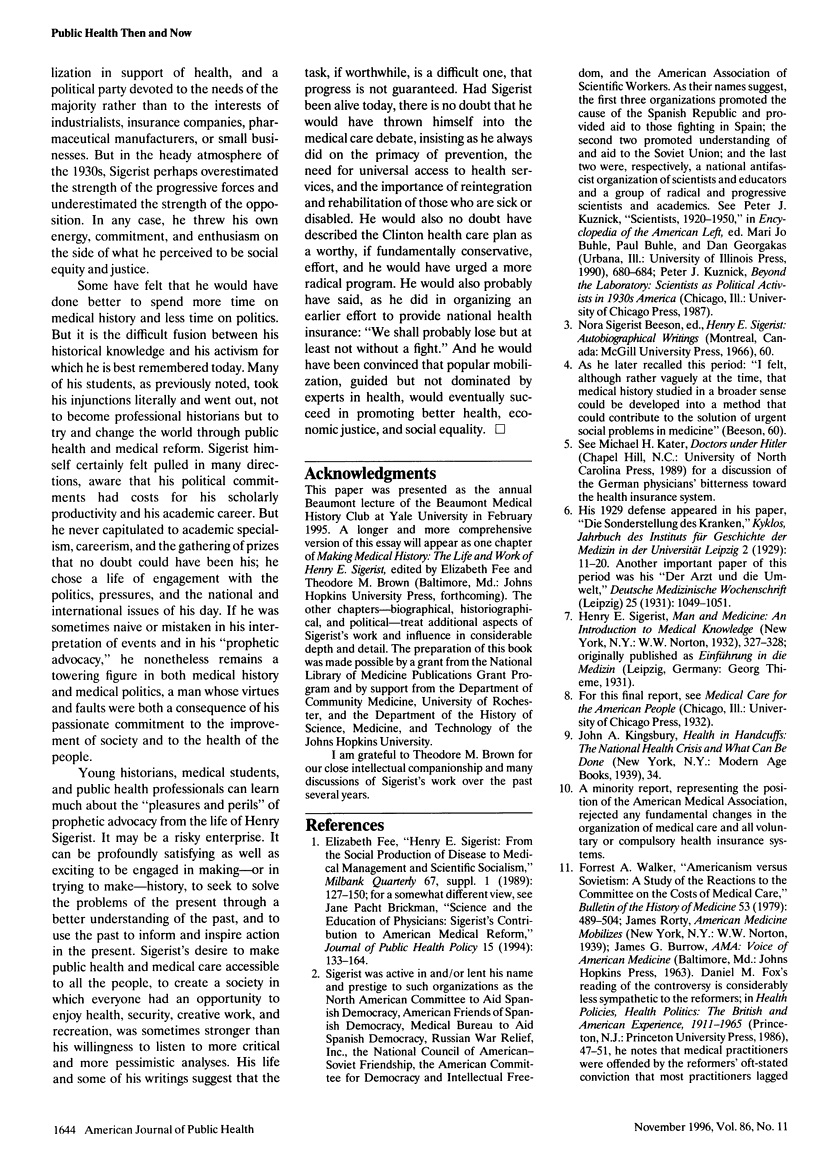
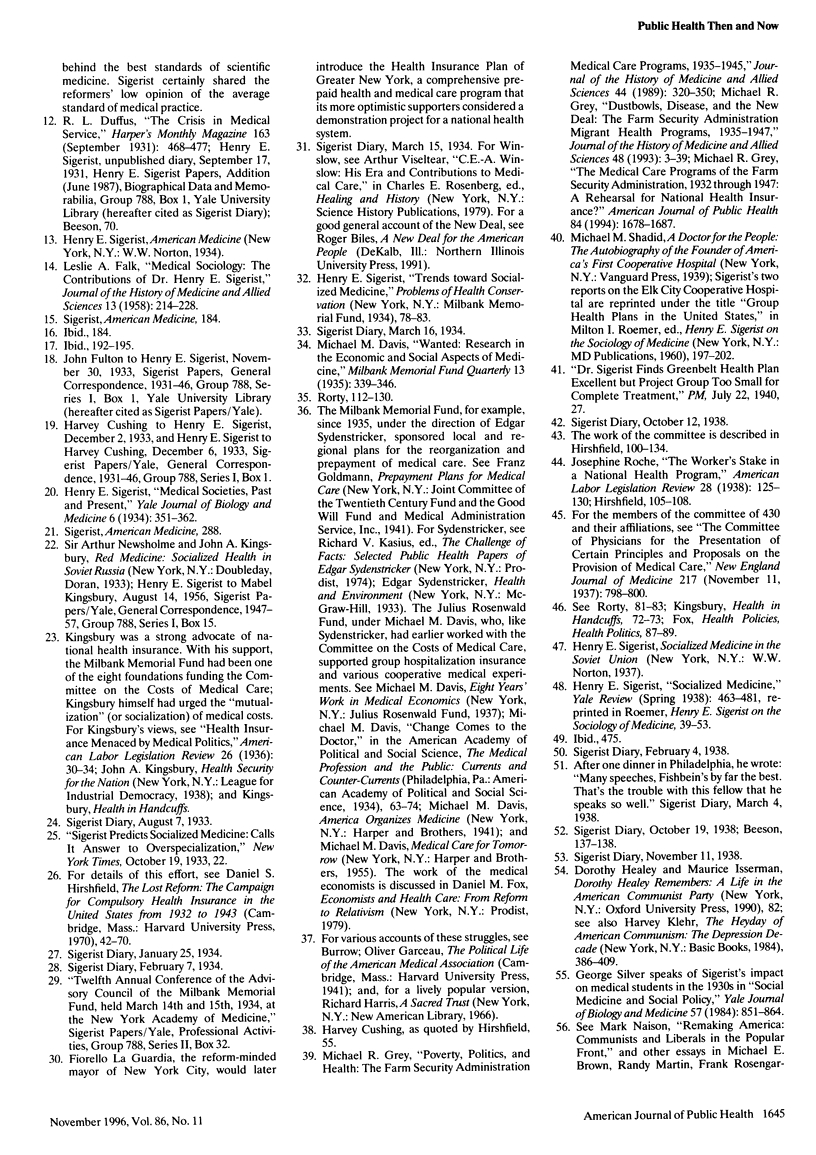
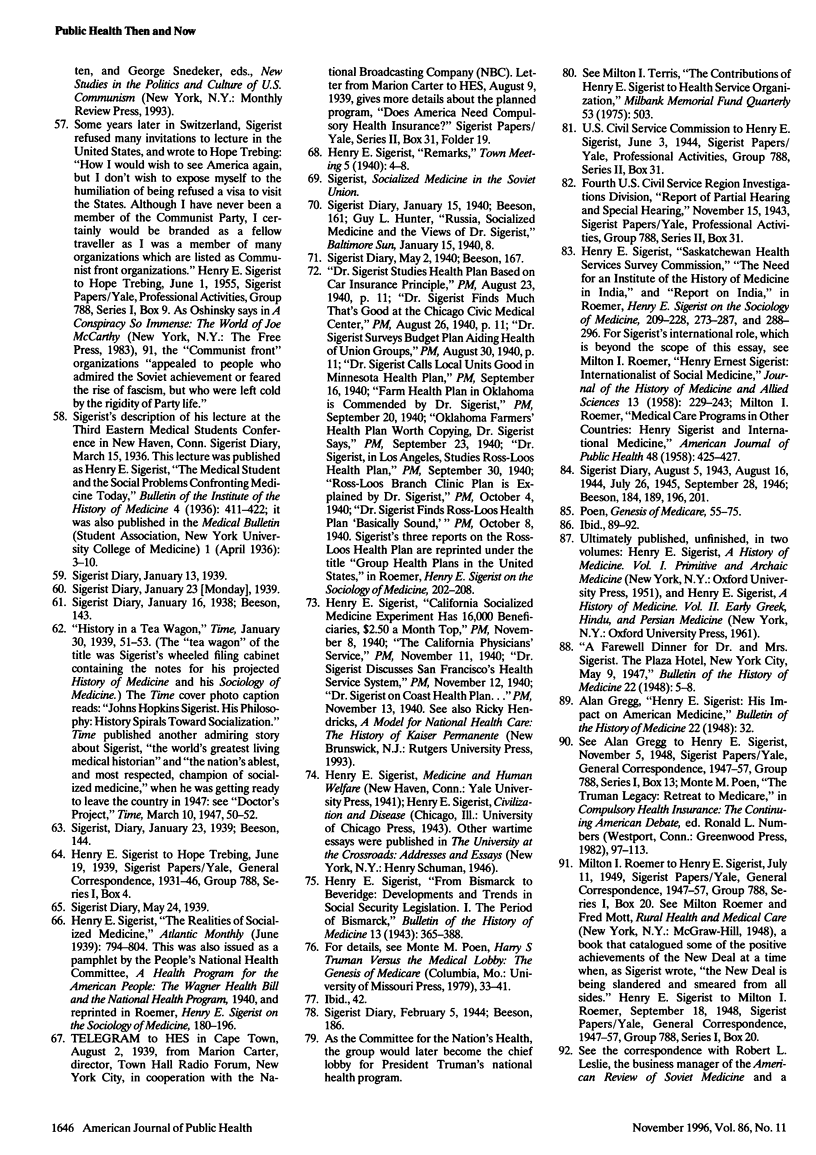
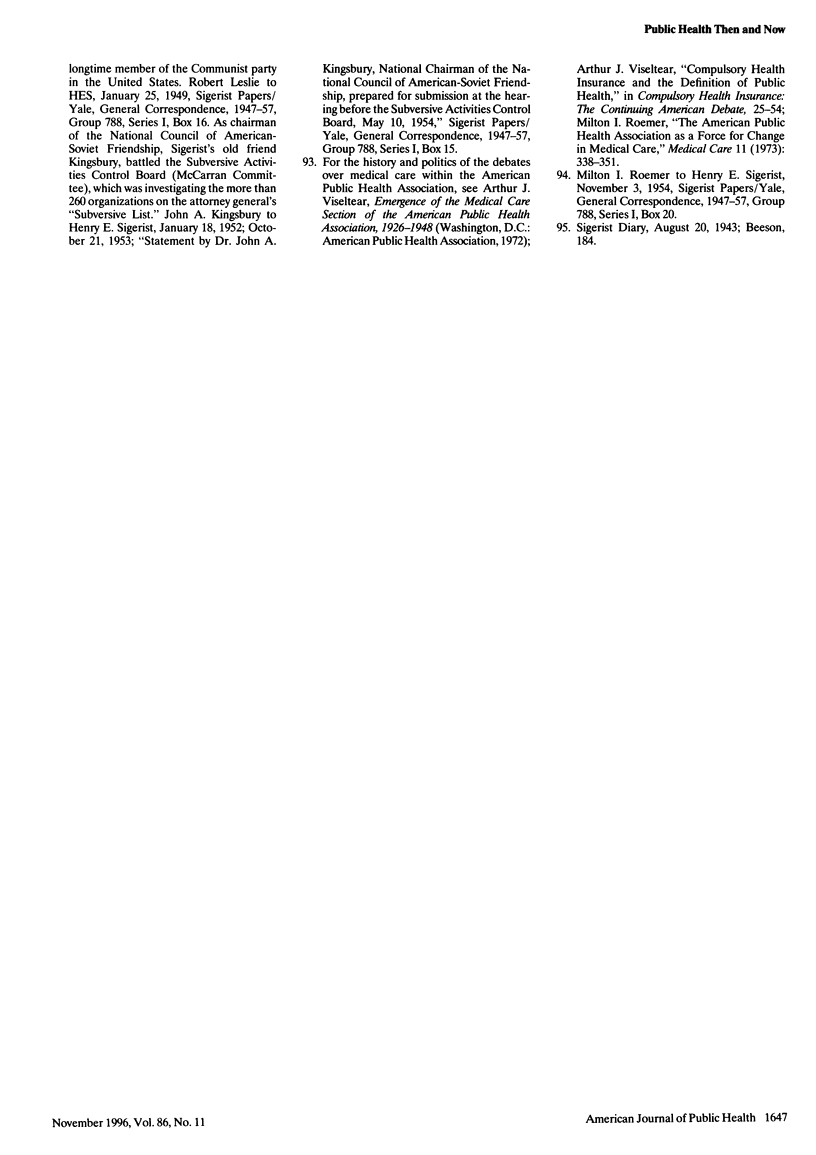
Images in this article
Selected References
These references are in PubMed. This may not be the complete list of references from this article.
- Brickman J. P. Science and the education of physicians: Sigerist's contribution to American medical reform. J Public Health Policy. 1994 Summer;15(2):133–164. [PubMed] [Google Scholar]
- FALK L. A. Medical sociology: the contributions of Dr. Henry E. Sigerist. J Hist Med Allied Sci. 1958 Apr;13(2):214–228. doi: 10.1093/jhmas/xiii.2.214. [DOI] [PubMed] [Google Scholar]
- Fee E. Henry E. Sigerist: from the social production of disease to medical management and scientific socialism. Milbank Q. 1989;67 (Suppl 1):127–150. [PubMed] [Google Scholar]
- Grey M. R. Dustbowls, disease, and the new deal: The Farm Security Administration migrant health programs, 1935-1947. J Hist Med Allied Sci. 1993 Jan;48(1):3–39. doi: 10.1093/jhmas/48.1.3. [DOI] [PubMed] [Google Scholar]
- Grey M. R. Poverty, politics, and health: the Farm Security Administration Medical Care Program, 1935-1945. J Hist Med Allied Sci. 1989 Jul;44(3):320–350. doi: 10.1093/jhmas/44.3.320. [DOI] [PubMed] [Google Scholar]
- ROEMER M. I. Henry Ernest Sigerist: internationalist of social medicine. J Hist Med Allied Sci. 1958 Apr;13(2):229–243. doi: 10.1093/jhmas/xiii.2.229. [DOI] [PubMed] [Google Scholar]
- ROEMER M. I. Medical care programs in other countries; Henry Sigerist and international medicine. Am J Public Health Nations Health. 1958 Apr;48(4):425–427. doi: 10.2105/ajph.48.4.425. [DOI] [PMC free article] [PubMed] [Google Scholar]
- Roemer M. I. The American Public Health Association as a force for change in medical care. Med Care. 1973 Jul-Aug;11(4):338–351. doi: 10.1097/00005650-197307000-00007. [DOI] [PubMed] [Google Scholar]
- Walker F. A. Americanism versus sovietism: a study of the reaction to the committee on the costs of medical care. Bull Hist Med. 1979 Winter;53(4):489–504. [PubMed] [Google Scholar]



